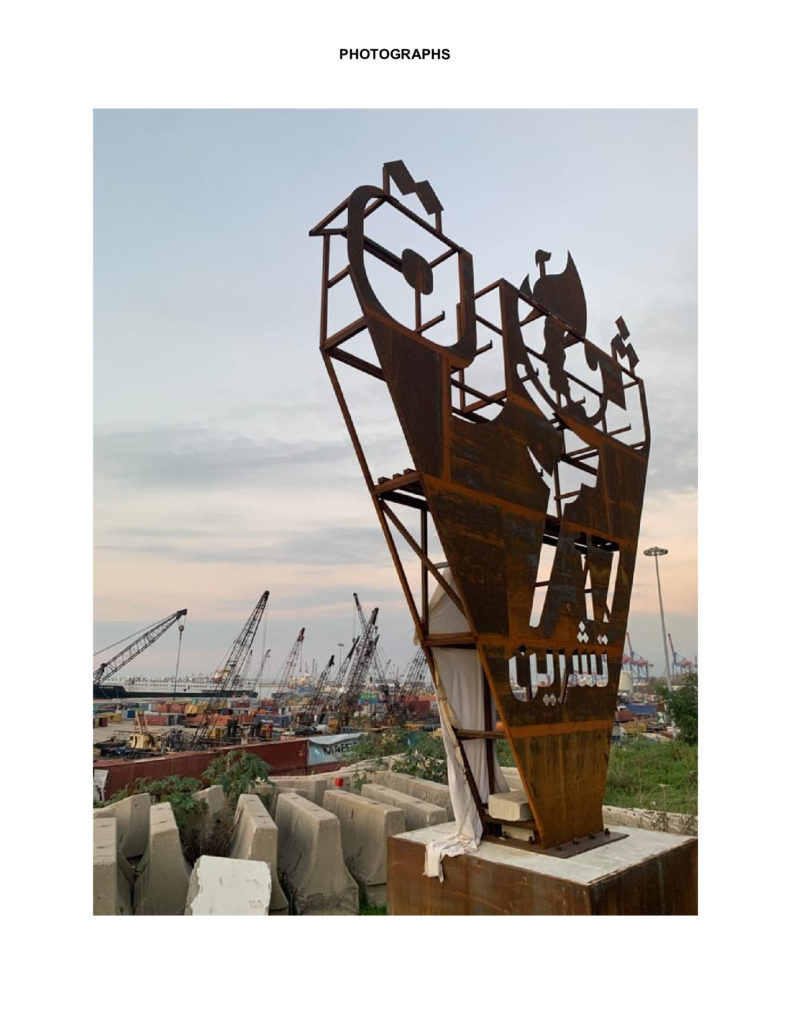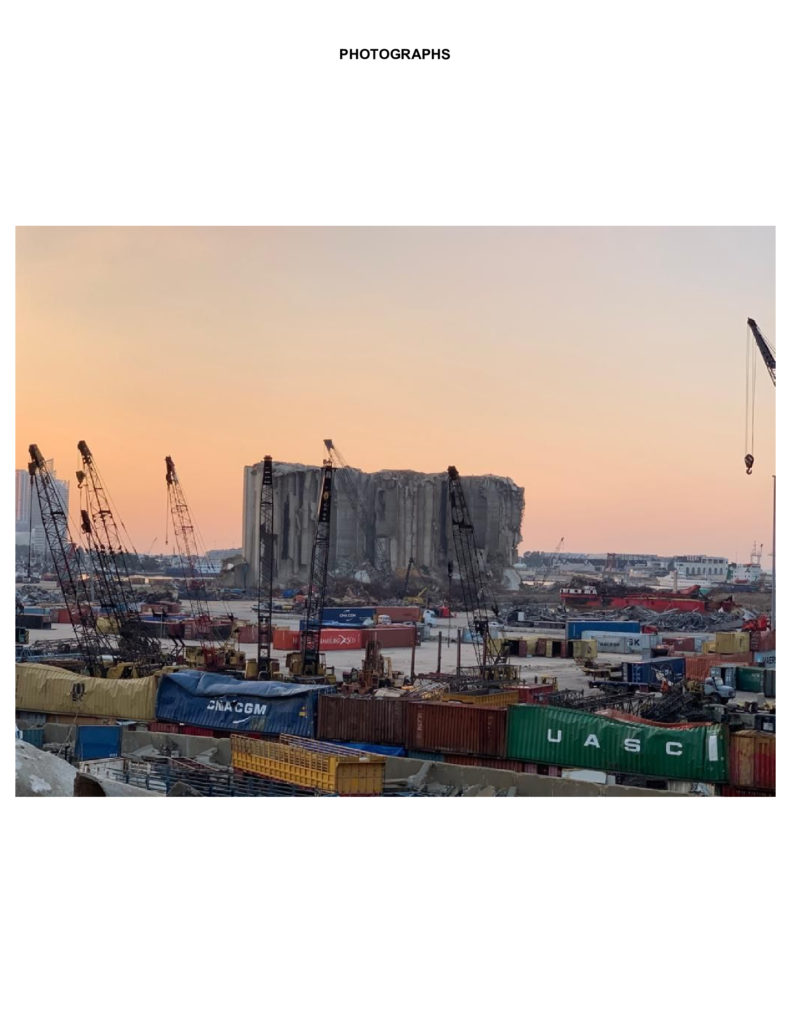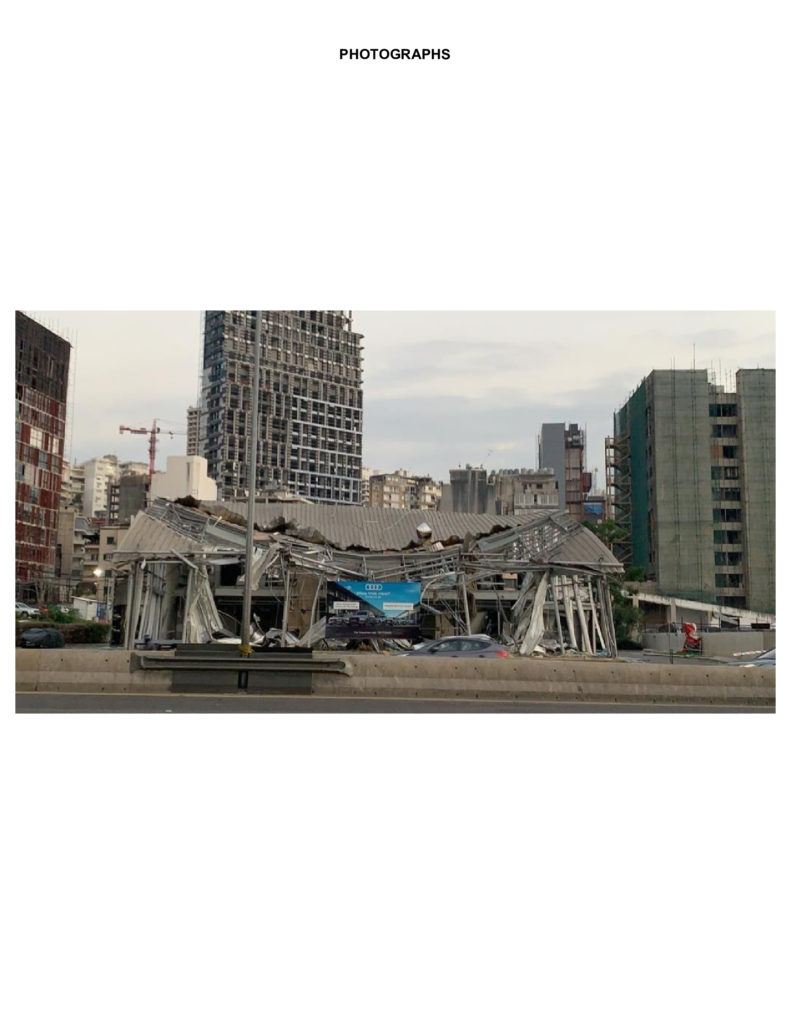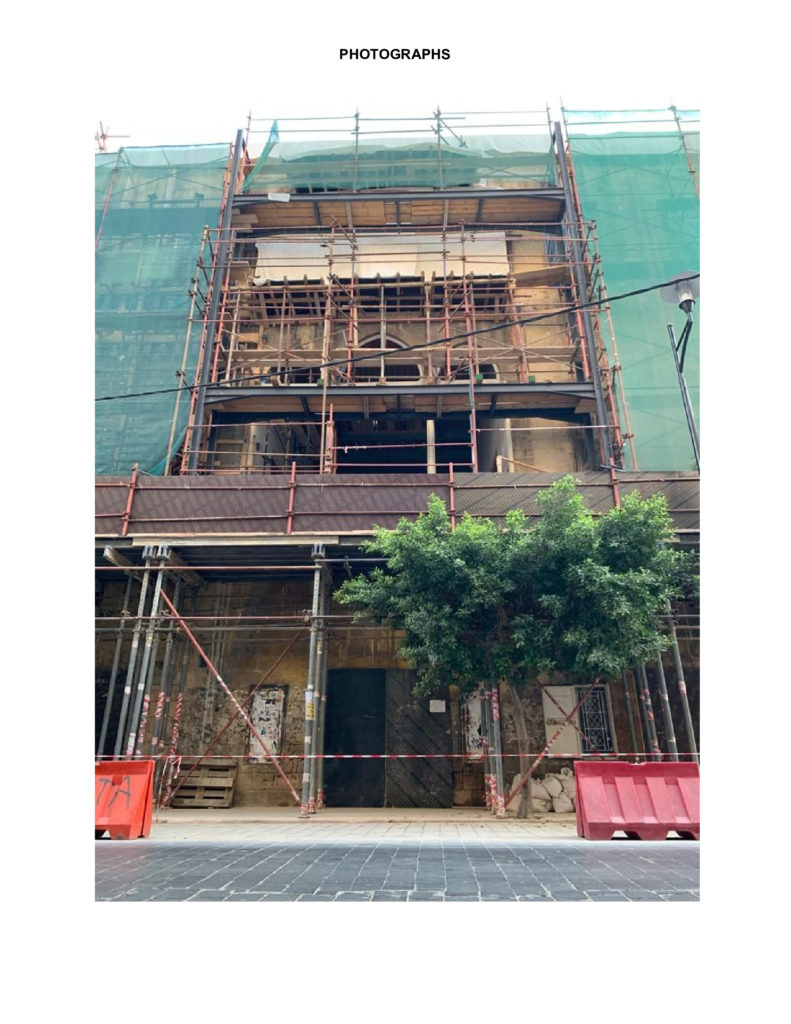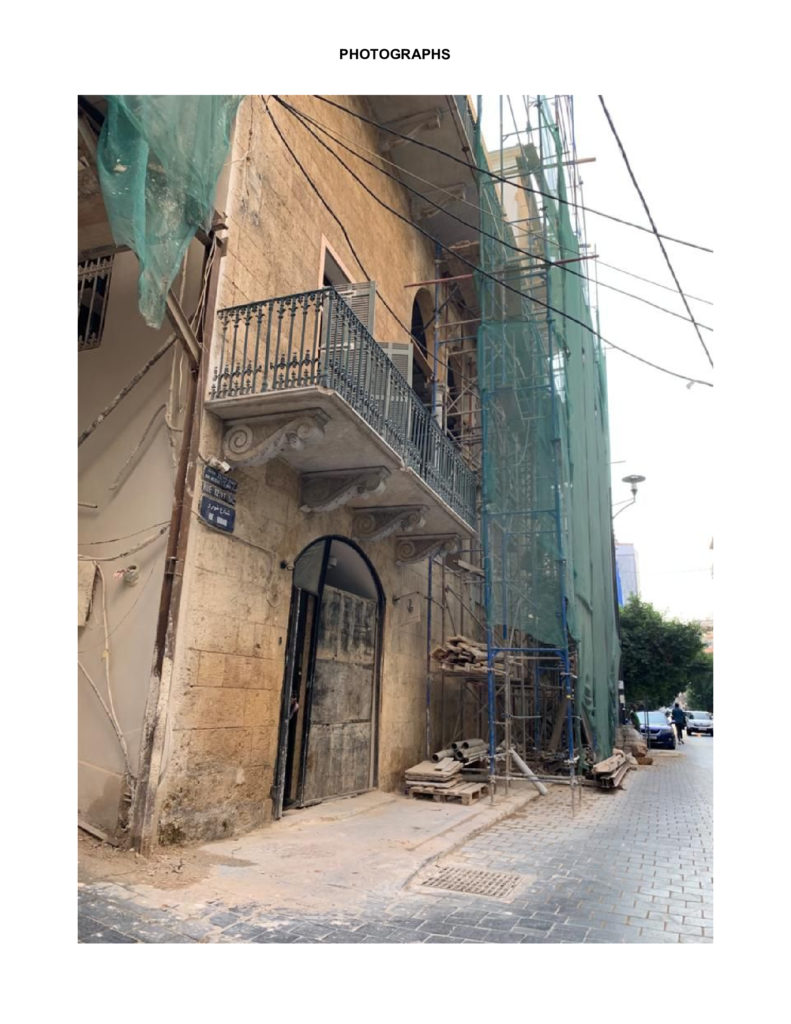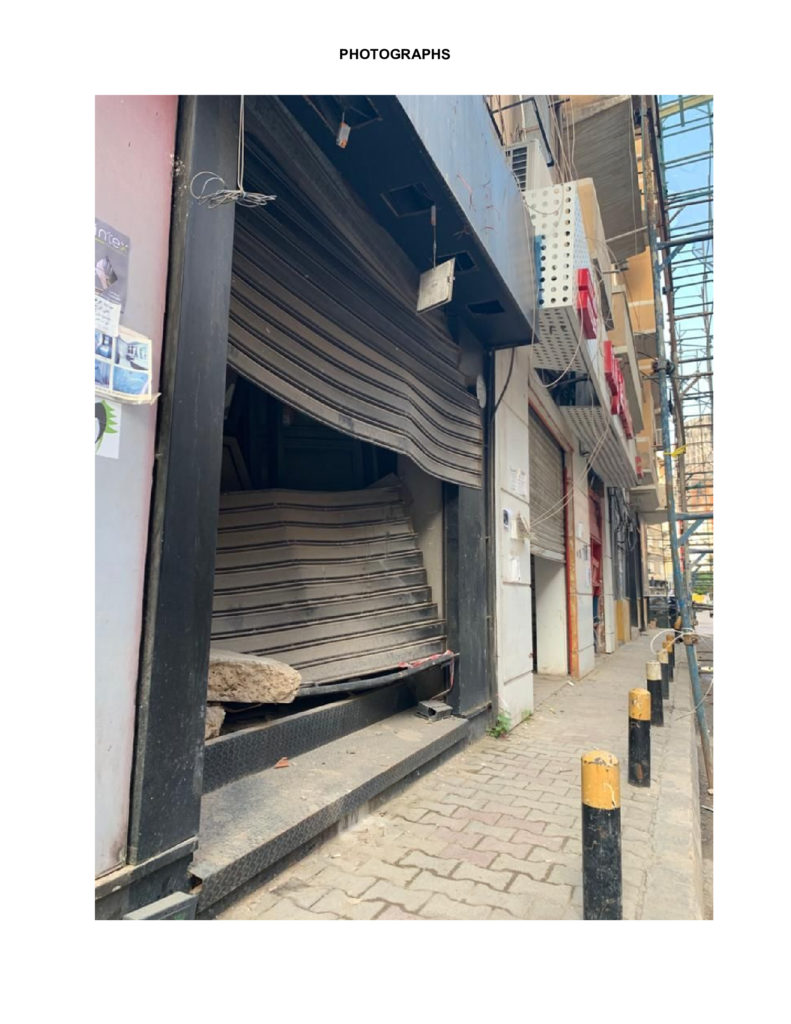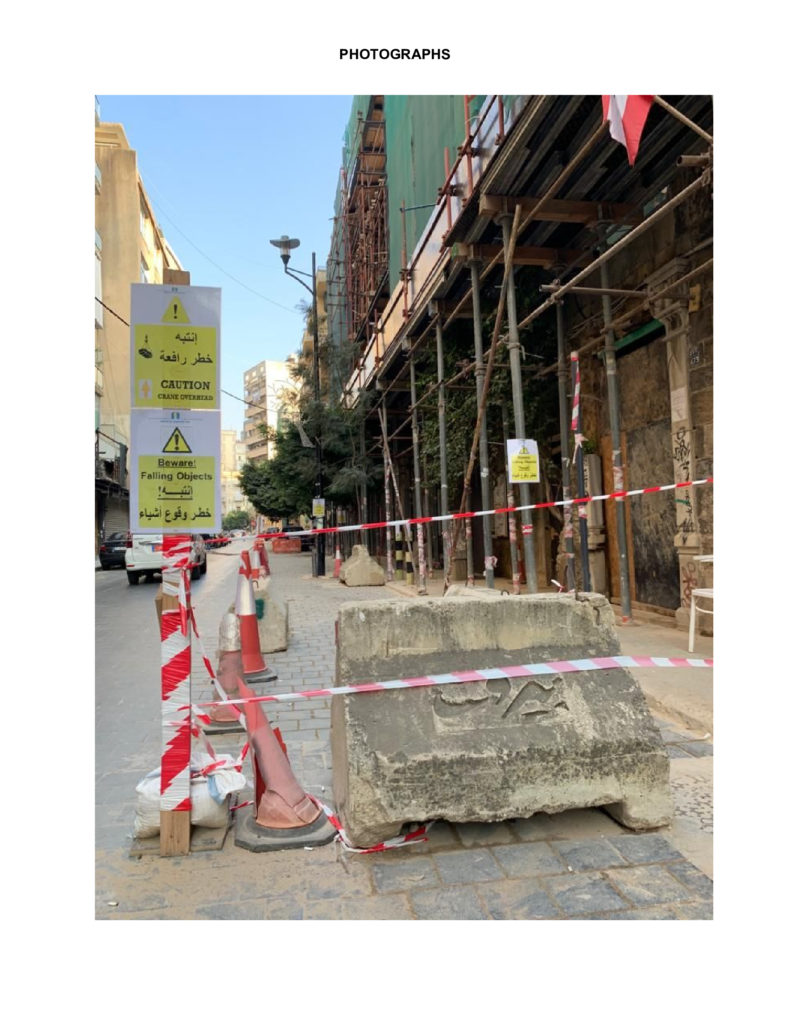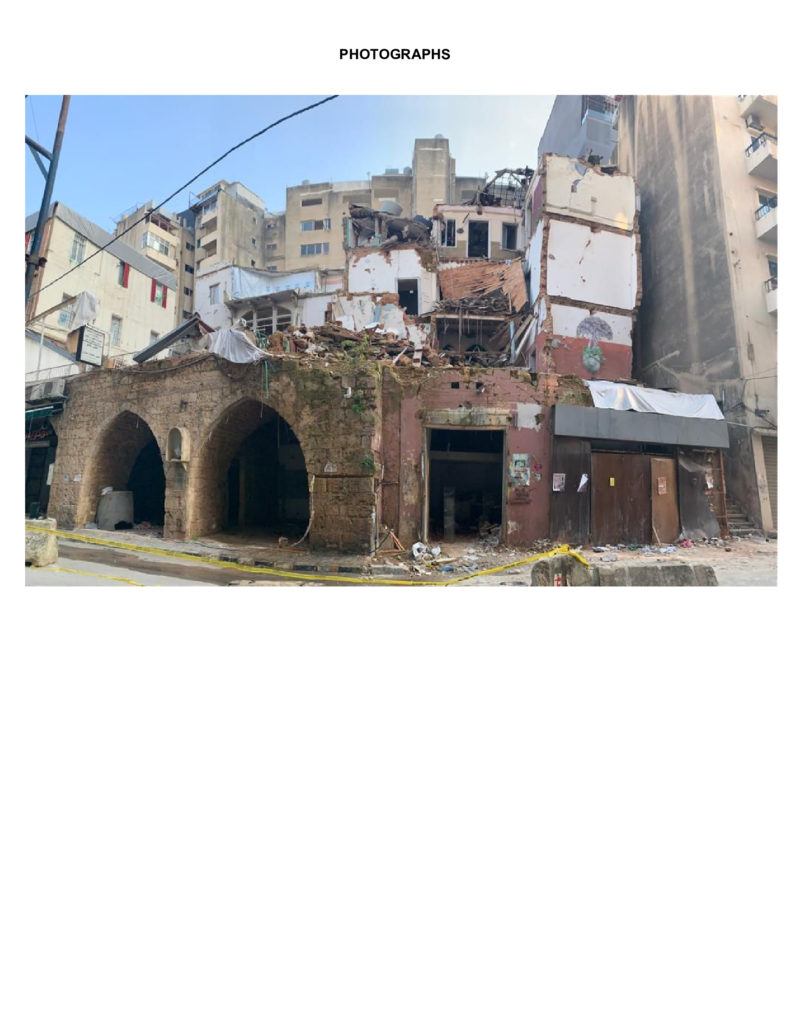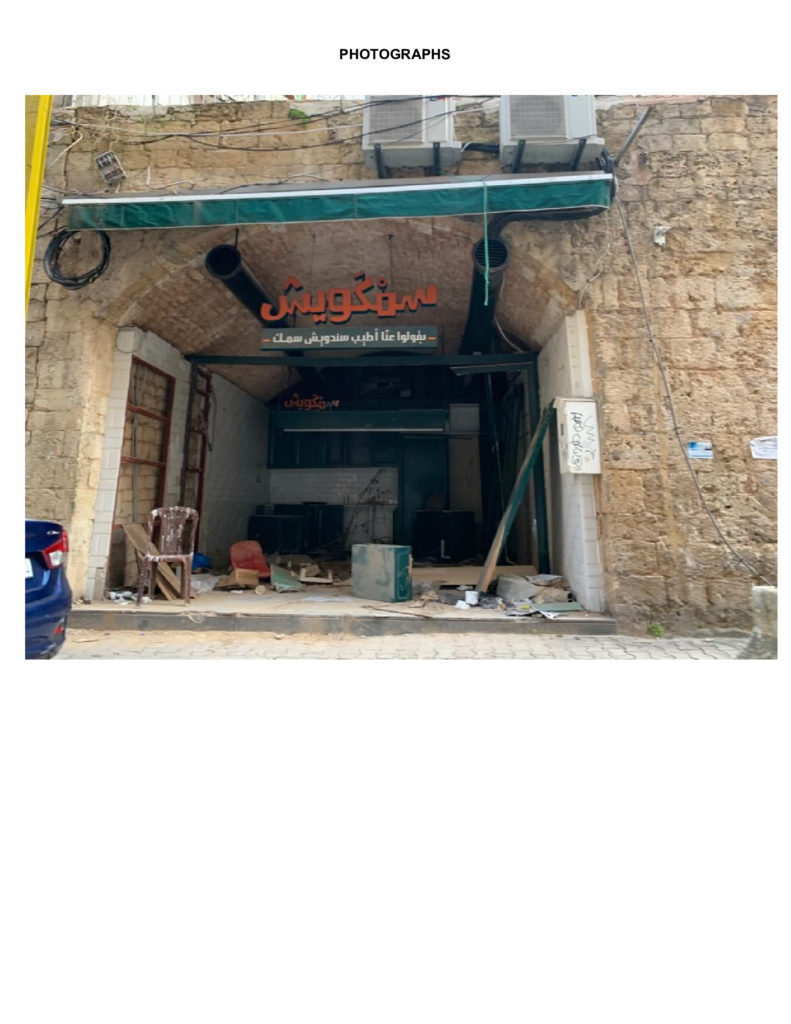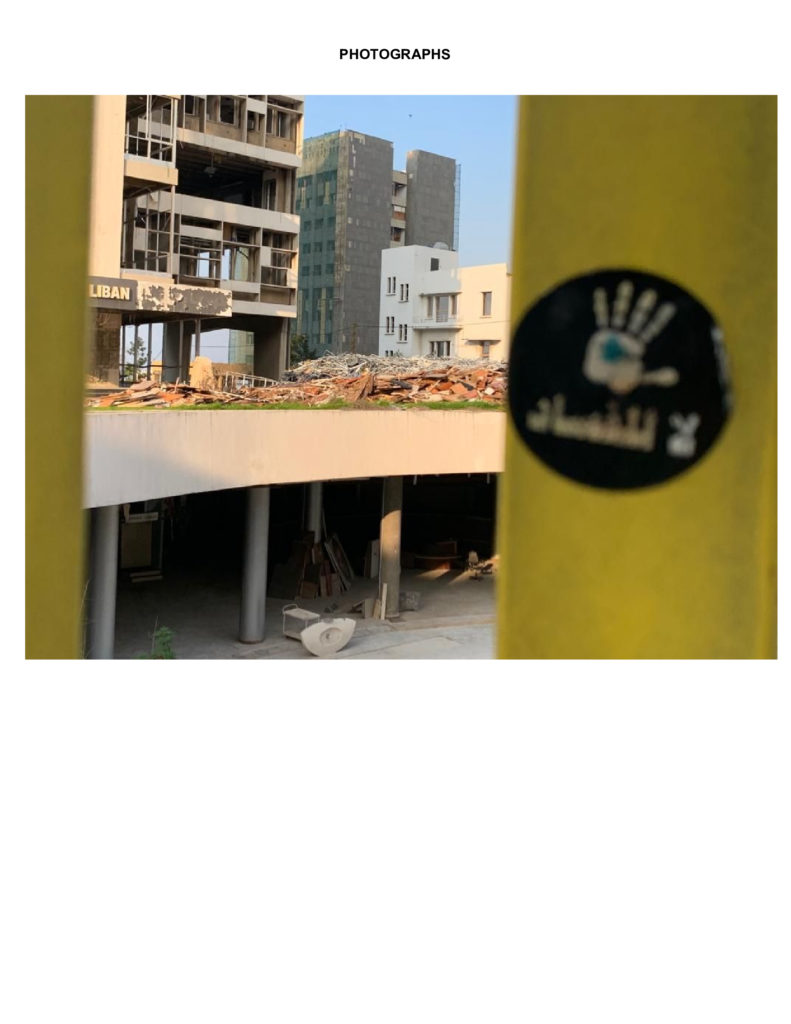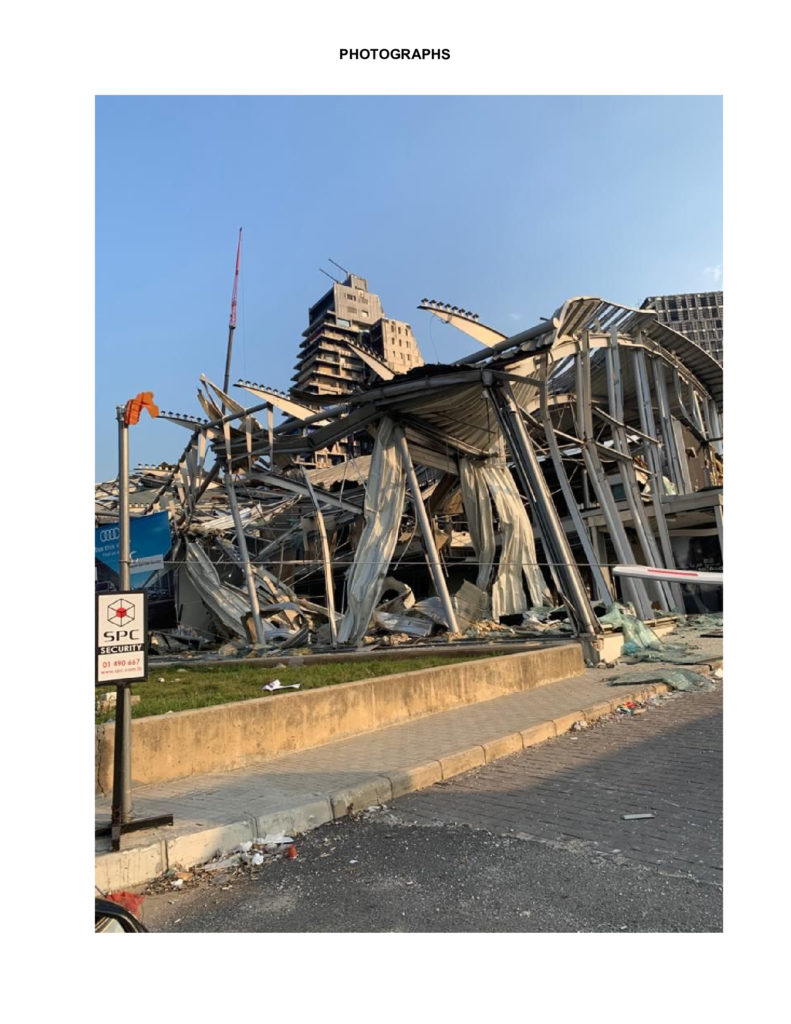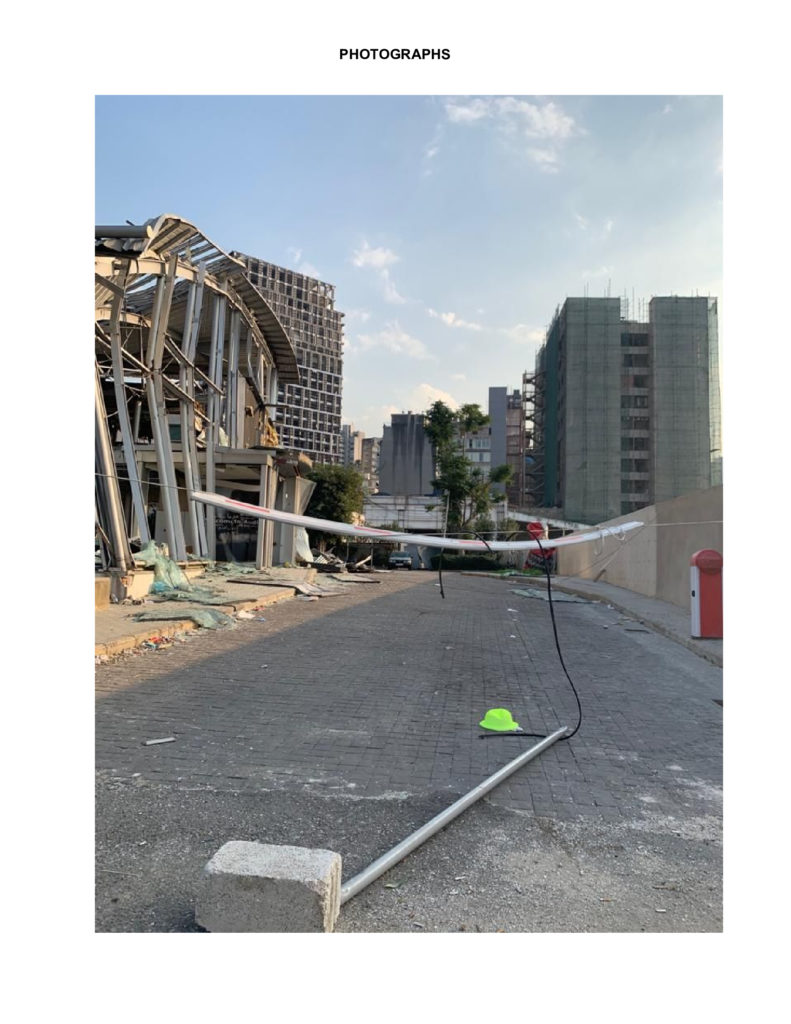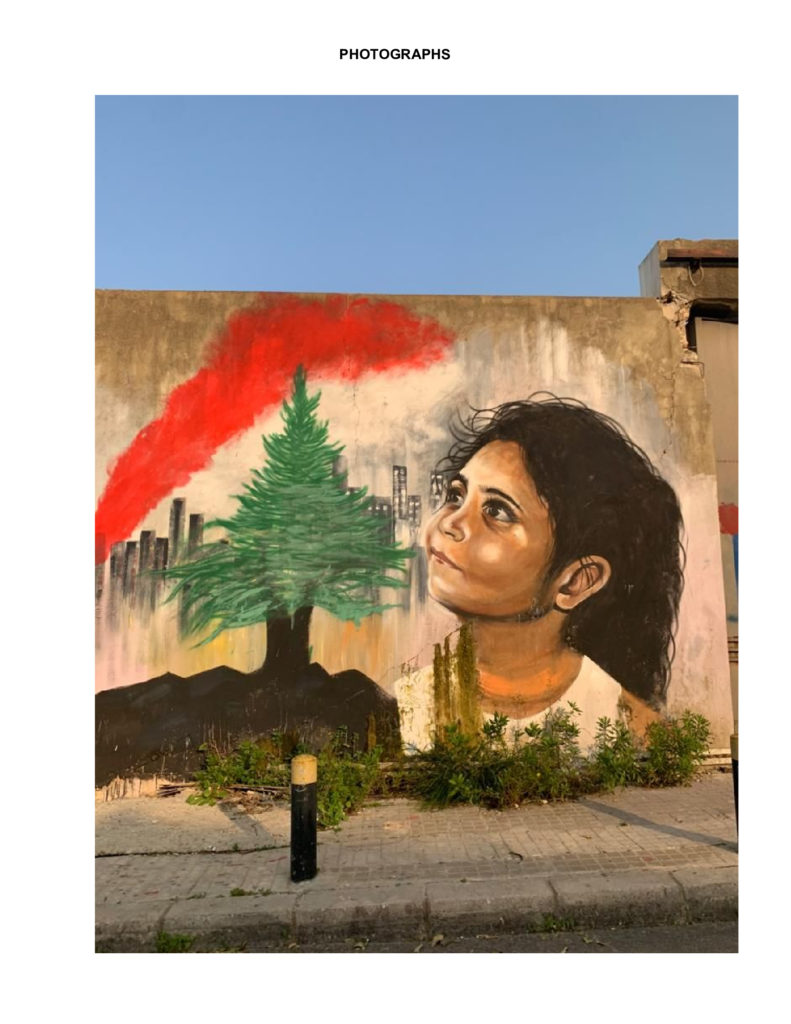There is always room for change
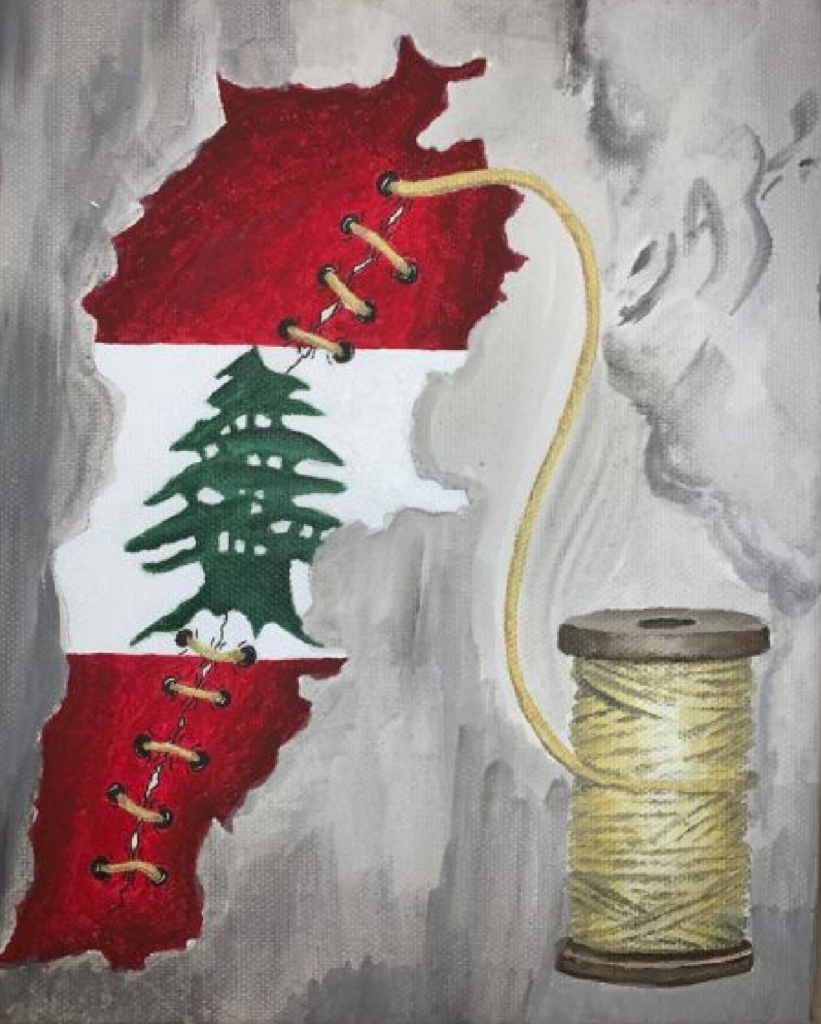
Arleb by Nabad interviews grade 10 student at Eastwood International School Zeina Daker. Zeina is only 15, she is Syrian, she lives in Lebanon, and is passionate about visual arts, especially painting and photography.
Arleb by Nabad – What is the experience that has influenced your work in the arts and culture field the most? Which subjects or themes are you working on?
Zeina Daker – The 4th of August explosion has influenced my work and it made me look at things from a different approach. I’ve seen how people, despite their differences, came down cleaning the streets and the damaged houses, providing shelters for the homeless, distributing food and bottles, etc… It shows how the Lebanese people respond at times of tragedy and how they come together. I wanted to contribute as well, so I decided to gather in paintings diverse emotions and ideas following this tragedy, as a kind of memoir and a tribute to commemorate the heroes of Beirut. I’ve also visited affected areas by the explosion and took photographs that influenced my work.
As for the themes I am working on are destruction, corruption, fear, unity, resilience, and hope.
Arleb by Nabad – What is your creative process like?
Zeina Daker – I first begin this process by creating a mind map and writing down all the ideas that come to mind. I often like to hear other people’s thoughts and experiences because my goal here is to express all the different emotions and thoughts — such as those that spiked following the Beirut port blast. Then, I create small and quick sketches to experiment with different arrangements in my composition as well as color combinations. Once the picture is clear in my mind, I grab my supplies and begin painting on canvas. Sometimes, I get inspired by an idea so I skip these steps and directly start painting on canvas.
Arleb by Nabad – What was the impact of the Beirut port explosions (August 4, 2020) on your artwork?
Zeina Daker – The Beirut port explosion shaped the core of my artworks. I personally find painting to be therapeutic as it helps me gather all my thoughts. Thankfully, my family, friends and I were not injured by the explosion, but of course the destruction and damages were inevitable. Looking at people’s reactions after the explosion and the anger they feel towards this neglected case helped me shape my ideas into common themes that people can relate to and connect with.
Arleb by Nabad – What are, according to you, the roles of arts and culture in social, economic, environmental or political change?
Zeina Daker – I think art plays a major role in contributing to change in many forms; socially, economically, environmentally, and politically. I believe that art is a language that resonates with everyone and it’s always interesting to learn how artists explore different ideas and influence a society’s perspectives. Art is also a means of raising awareness about environmental issues. Art street is mostly observed during protests and it plays a big part in conveying messages. It serves as a voice for artists who wish to express their opinions.
During the process of working on my artwork, I realized how our input results in a significant impact regardless of how big or little we contribute to something, as long as we make the effort. There is no limit when it comes to creative thinking and initiating inspiring ideas, so there is always room for change.
Arleb by Nabad – What are, according to you, the main challenges/obstacles facing artists in Lebanon nowadays?
Zeina Daker – I think that artists in Lebanon are facing many challenges today due to the explosion that has damaged their workshops and studios. I visited the ‘Wounded Art’ gallery in Villa Audi, Ashrafieh in January where several damaged paintings and sculptures by Lebanese artists were displayed across 3 floors. These artworks now carry traces of the explosion. Aside from the explosion, many artists in Lebanon are struggling to exhibit their work due to lockdown restrictions. On the bright side, there are initiatives, such as Nabad Art, that acknowledge such factors limiting or affecting artists in Lebanon and aim at helping them share their work to a wider audience and a new platform, which I find really cool.
